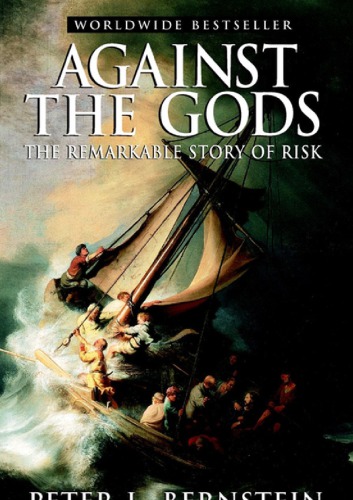
Against the Gods
The Remarkable Story of Risk
کتاب های مرتبط
- اطلاعات
- نقد و بررسی
- دیدگاه کاربران
نقد و بررسی

September 9, 1996
Risk management, which assumes that future risks can be understood, measured and to some extent predicted, is the focus of this solid, thoroughgoing history. Probability theory, pioneered by 17th-century French mathematicians Blaise Pascal and Pierre de Fermat, has made possible the design of great bridges, electric power utilities and insurance policies. The statistical sampling methods invented by dour Swiss scientist Jacob Bernoulli undergird diverse activities such as the testing of new drugs, stock-picking and wine tasting. Bernstein (Capital Ideas) animates his narrative with a colorful cast of risk-analyzers, including gambling addict Girolamo Cardano, 16th-century Italian physician to the Pope; and John Maynard Keynes, whose concerns over economic uncertainty compelled him to recommend an active, interventionist role for government. Bernstein also traces the development of business forecasting, game theory, insurance and derivatives, and surveys recent advances in risk forecasting made possible through chaos theory and by the development of neural networks.

November 1, 1996
For several centuries, mathematics has been the language of the exact sciences. Only in the 20th century has mathematics become predominant in other fields, particularly economics and finance. In this book, Bernstein (Capital Ideas: The Improbable Origins of Modern Wall Street, LJ 12/91), head of an economic consulting firm, traces the development of probability theory from its beginnings in analyzing games of chance, through its application to statistical theory and insurance, up to its present use in developing investment strategies to control risk. He includes excellent sections on portfolio analysis and on investments in derivatives. Bernstein clearly describes the people, their work, and the events that have revolutionized the thinking on Wall Street. A worthwhile acquisition for business and math collections.--Harold D. Shane, Baruch Coll., CUNY
Copyright 1996 Library Journal, LLC Used with permission.

September 15, 1996
Bernstein's lively history chronicles a profound transformation in attitudes about the future. How one's fate changed from depending less on capricious outcomes and more on predictable ones forms the backbone of the narrative. His central characters are mathematicians who began pondering the statistics of gambling, or gamblers pondering the risks of gambling: about one sixteenth-century polymath, Girolamo Cardano, Bernstein writes that his "credentials as a gambling addict alone would justify his appearance in the history of risk," and that comment is typical of Bernstein's engaging presentation. Amid his recounting of the insights into probability from Pascal to Keynes, he touches on an array of modern fields in which risk analysis is crucial--insurance, commodities futures, stock markets, and that old standard, gambling. This cornucopia of biographical sketches, mathematical examples, and reflections on the nature of human expectations about the future faces little risk of idling in libraries; patrons of the business section might be keenest to read it. ((Reviewed Sept. 15, 1996))(Reprinted with permission of Booklist, copyright 1996, American Library Association.)

























دیدگاه کاربران